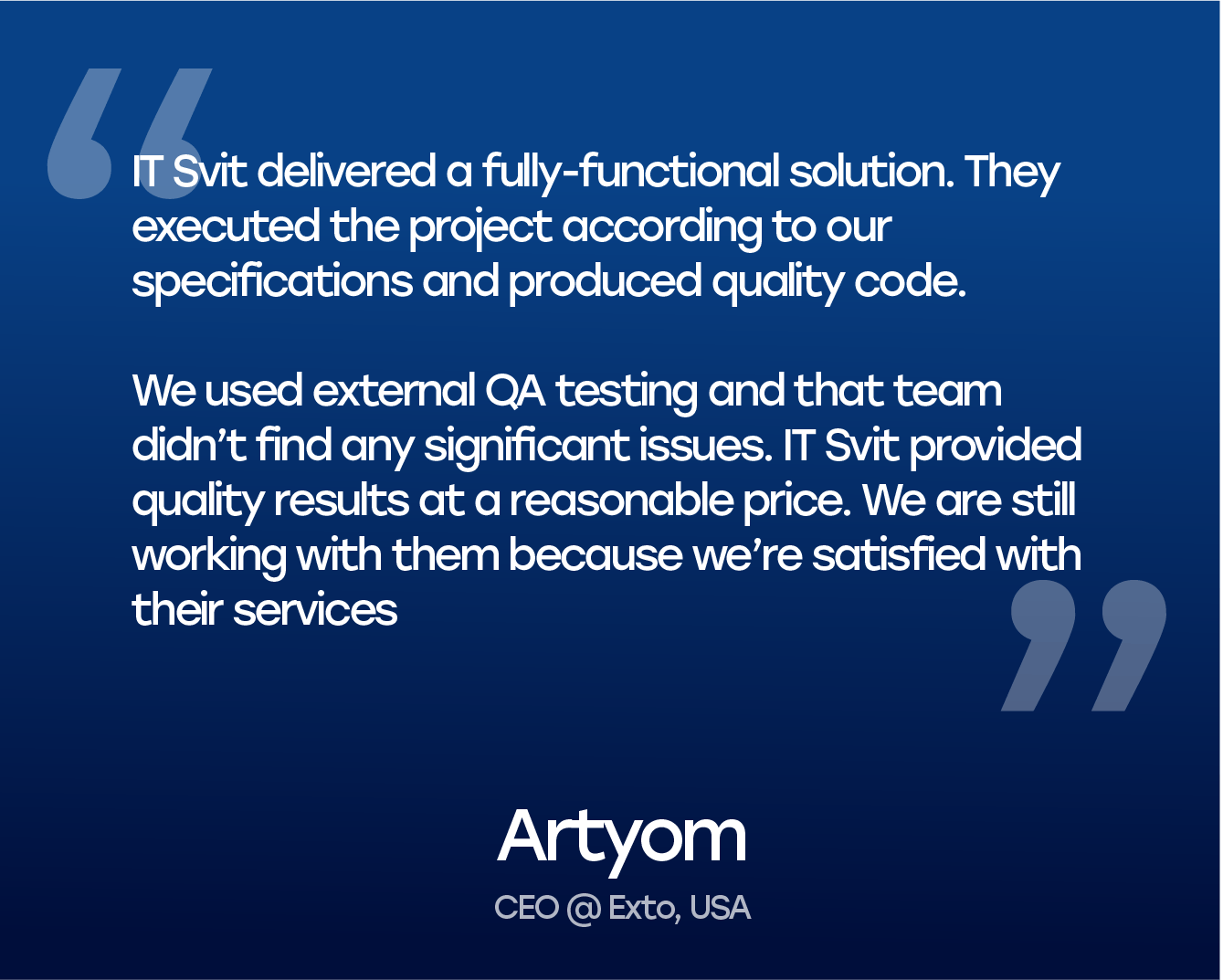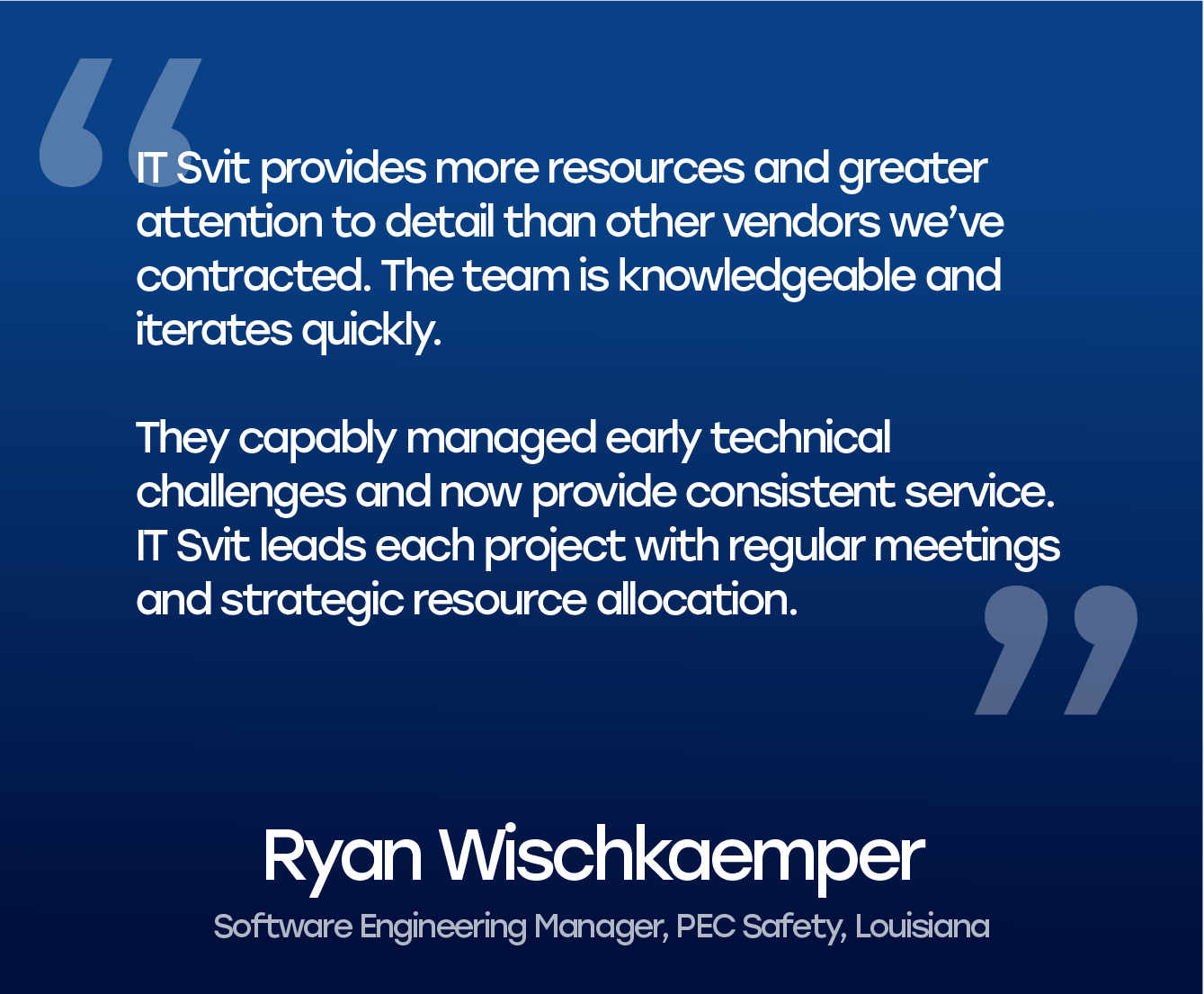Who are DevOps developers and where can you find them?
-
5547
-
2
-
2
-
0
Most companies nowadays understand the need to update their software development practices and IT operations to gain a competitive edge and bring more value to their customers. The best way to do this is by gaining access to DevOps developers, who can combine top-notch programming skills with expertise in building CI/CD pipelines. This helps to automate routine IT operations, increase operational stability, software delivery predictability and increase the team performance in general.
A portrait of a DevOps developer
Who is a DevOps developer then? It is a software architect that can both provide the software code and plan, design and implement the required IT infrastructure and CI/CD workflows required to create an efficient and productive software delivery process.
On the other hand, DevOps engineers mostly concentrate on the infrastructure side of things. Their tasks include providing the server environments and CI/CD pipelines required for software development automation, as well as provisioning and managing infrastructure for production servers.
Here is what IT Svit customers say about working with our DevOps developers:
DevOps skills
There are 10 crucial DevOps skills required from such a specialist include:
- In-depth understanding of *nix system administration
- Profound knowledge of Linux scripting and containerd basics
- Hands-on experience with various DevOps tools and platforms
- Detailed understanding of DevOps principles and key concepts like IaC (Infrastructure as code), CI (Continuous Integration) and CD (Continuous Delivery)
- Understanding of security and compliance requirements, as DevSecOps is one of the most popular DevOps trends in 2019
- Good experience with one or more programming languages and automated unit testing
- In-depth expertise with cloud monitoring and logging solutions
- Expertise and DevOps certification for cloud computing providers like AWS, Google Cloud or Azure
- Hands-on knowledge of the latest cloud tech: serverless computing, blockchain infrastructure, Internet of Things implementation, Big Data
- Soft skills (teamwork, communication, collaboration, client-oriented mindset)
What is DevOps engineer supposed to use these 10 qualifications for? Let’s take a closer look.
*nix system administration
DevOps methodology was introduced to rectify the shortcomings of system administration, which was mostly manual back then. However, using the latest DevOps tools and trends does not allow to omit to learn the system administration in depth. You should not do everything manually now — but you must clearly understand what you do and why you do it.
Linux scripting and containerD concepts
Once again, Linux system administration is impossible without scripting and using virtual containers. It is essential, as the CLI remains the main infrastructure assessment and management tool, and the apps nowadays are developed and managed using Docker containers. These are based on Linux containerD technology, which is currently developed by Cloud Native Linux Foundation. Therefore, a profound understanding of Linux scripting and container concepts is a must for an aspiring DevOps engineer
Experience with popular DevOps tools
A DevOps specialist must use popular DevOps tools, naturally. These tools can be split into various categories covering the full software development lifecycle, from code writing and testing to logging and monitoring of production environments.
- Source and version control systems (Git, GitHub, GitLab)
- Infrastructure orchestration (Terraform, Salt, OpenStack)
- Configuration automation (Kubernetes, Puppet, Chef, Salt)
- Continuous Integration (Jenkins, Circle CI, Gitlab CI)
- Continuous Deployment (Ansible, Jenkins, CircleCI)
- App containerization (Docker)
- Cloud computing management (AWS, Google Cloud, Azure, etc)
- Cloud monitoring, alerting and logging (ELK stack, Prometheus & Grafana, Splunk, Sumologic, FluentD, Datadog, etc.)
- Design and implementation of infrastructure for Big Data analytics (Python, R, Go, etc)
- Infrastructure management for Machine Learning and Artificial Intelligence algorithms training and operations (JuPyteR Notebook, Keras, OCR, Hadoop, Kafka, etc)
- Deployment of infrastructure for distributed blockchain products (Ripple, Ethereum, etc.)
In-depth understanding of DevOps principles and concepts
We have briefly mentioned these above, but a DevOps developer must have a profound understanding of 3 core DevOps principles: IaC, CI and CD.
- Infrastructure as Code or IaC is an approach to infrastructure management when all environmental or procedural settings are stored in Version Control System like GitHub in textual files (so-called Terraform and Kubernetes manifests), ensuring the same infrastructure is deployed for testing, staging and production environments. Such manifests are easily versioned, allowing the developers to launch exactly the environments they need in seconds, instead of reconfiguring them. Such an approach ensures the infrastructure is immutable and negates the possibility of configuration drift. This allows treating servers as cattle, not pets, so it’s easier to provision the environment anew, than trying to reboot the server after a failure.
- Continuous Integration or CI is a practice of delivering new code in small chunks and performing automated unit and integration tests after each commit to the main project trunk. This removes the risk of larger bags being discovered after merging long project branches and helps developers write clean and efficient code.
- Continuous Delivery or CD is a practice of configuring so-called CD pipelines, where multiple actions are performed automatically if certain conditions are met. For example, this allows automatically deploying the whole chain of environments needed for testing (unit, integration), staging (consistency) and production. Due to IaC, these environments will be identical and due to CI, each code commit will be automatically pushed to production. The same logic works for managing the production environments, as multiple repetitive processes (updates, backups and restoration, monitoring, scaling, replication, etc) can be easily automated using CI/CD pipelines.
Thus said, when DevOps engineers have a clear understanding of what IaC, CI and CD are, and are able to build a coherent IT delivery workflow, the business as a whole benefits a lot.
Security and compliance
As DevOps is all about automated delivery of new code to production (and automated management of said production environments), there is no place left to adding the security and compliance checks at the last moment. Nowadays, these checks must be integrated into the testing routine from the very beginning, as well as considered on the infrastructure and product architecture planning stage. On the other hand, using containerized apps helps add another layer of security, as well as running a Kubernetes cluster, so implementation of efficient security routines requires a detailed understanding of a combination of app, platform, and infrastructure security features.
Cloud monitoring and logging
One of the key tasks of every DevOps engineer is cloud logging and monitoring your systems in production. This can be one using either cloud monitoring solutions provided by the service providers, like CloudTrail from AWS, or open-source tools like ELK stack, Prometheus&Grafana, Nagios, Icinga, Splunk, Sumologic, Datadog and others. This is an important step as if the monitoring process is configured correctly, it allows the alerts to trigger preconfigured CI/CD responses, like increasing or decreasing the number of instances based on current system workload.
Understanding of Cloud Service Providers
Actually, a good DevOps specialist should be well-versed not only with cloud monitoring but with the full range of cloud features and services required for building efficient infrastructures for customer projects. They must understand the differences between Amazon S3 and Google storage, and what features must be used in various cases. This expertise should be proved by various certifications, as diplomas from AWS, Google cloud or Azure are good guarantees that this specialist knows what he is doing.
Hands-on expertise with the latest cloud tech
Cloud computing technologies are moving ever onward, providing new incredible capabilities to their users. Amazon Aurora and Fargate, Google Big Query and ML library, Azure Functions and AWS Lambda, managed Kubernetes and Blockchain solutions — all of these can be incorporated in your business workflows to significantly increase their reliability and efficiency.
Soft Skills
DevOps developers are no magicians. They can do incredible things, but it is not done with a wizard’s wand — it requires lots of intense thought, experimentation, and teamwork. Teamwork is essential, as DevOps engineers have to clearly communicate their vision, collaborate with other team members and the customer to clarify all the project peculiarities. Therefore, soft skills are essential for any good DevOps developer.
Another example of results provided by IT Svit team of DevOps developers:
Finding DevOps developers
As you can now surely see, finding a good DevOps developer is not quite easy. Such specialists either don’t exist or are already employed at various Managed Services Providers like IT Svit. Why so? Because IT specialists are not aiming for stability. They search a chance to test and increase their skills, to learn something new and accomplish something great. Working in IT outsourcing allows them to deliver projects for companies in various industries, of varying scopes and with a varying list of components.
This way they are able to try out various DevOps roles and gain lots of expertise shortly, instead of doing the same work for the same company for years with no chance to grow as a professional. Thus said, contacting the leaders of IT outsourcing market provides the best chance to quickly gain access to the services of a skilled DevOps manager.
How to choose a dedicated DevOps team able to deliver your project successfully?
The rule of thumb is that the more experienced the DevOps services provider — the better results they can deliver, obviously. The team expertise can be assessed through customer reviews on various forums and rating agencies, by requesting references to their previous customers, by evaluating the team skills through a pilot project, etc.
The approaches vary, the result is the same:
- read the reviews and shortlist the most trustworthy teams,
- ask their previous customers for an opinion or reference,
- select the DevOps developers that fit your budget and can satisfy the project requirements,
- have a technical call to check their skills,
- maybe run a pilot with them — and move forward with your projects, knowing you are on the safe side.
A good DevOps manager or Team Lead will not only ask what you want to receive but also why you need it done this way — and will often be ready to offer a better solution, based on their expertise. They concentrate on a few areas only, instead of claiming to be able to do anything — as the people who can do anything, can rarely do anything perfectly. At the same time, solutions from a reliable remote DevOps team will not merely solve the task at hand — they will help drive more value to your customers and serve them better, utterly helping your business succeed.
How to evaluate the skills of a DevOps specialist?
There is a pretty straightforward test for the evaluation of what is DevOps engineer capable of, that can be done during a technical call:
- Ask of the types of projects they completed. The answers must not be vague like “moved several apps from AWS to Google cloud” or “helped develop new product features”. They will answer more along the lines of “deployed multiple Kubernetes clusters using Terraform manifests to ensure infrastructure immutability” or “created Docker containers for several Blockchain-based distributed products to ensure platform stability under heavy workloads”. A good DevOps developer understands THE PURPOSE of the processes they perform, not just WHAT they do – but WHY.
- Ask of their expertise and certifications. DevOps never stops evolving, so to prove their prowess to themselves and their customers, good DevOps developers frequently undergo various DevOps certification programs. For example, IT Svit DevOps team is currently undergoing the advanced certification for AWS, GCP, Kubernetes, Terraform and Docker.
- Ask of their practices of knowledge sharing and tutoring. Sharing knowledge only increases its quantity, so good DevOps engineers are eager to help their colleagues to learn DevOps best practices — and learn something from them in return! This is a common practice at IT Svit, where we have DevOps Talks — internal events where DevOps engineers and other specialists share their experience and help colleagues master various new tools and features faster.
Yet another proof of the impact of collaboration with IT Svit:
More than 20 positive IT Svit customer reviews on Clutch prove our expertise and efficiency.
Why work with third-party DevOps developers?
Trying to hire a decent DevOps engineer to an in-house team is the standard approach of every business. However, hiring a decent DevOps developer is close to impossible, due to the reasons described above. In short, working at MSP’s allows them to diversify their tasks and grow as a professional very quickly — for example, many IT Svit DevOps engineers grew from Juniors to Seniors in a couple of years. Rare companies offer the same possibilities. In addition, building an in-house team takes time, an means more costs on recruitment and effort spent to establish a productive workflow.
Thus said, hiring a DevOps team from a Managed Services Provider provides instant access to highly-skilled specialists, who have many solutions readily available for your project and work according to polished workflows. This helps save a ton of time, money and effort while delivering top-notch solutions and reliable DevOps services.
Where best to look for a dedicated DevOps team? Ukraine is emerging as the №1 outsourcing destination worldwide, which was proved by multiple accolades and is justified by more than 20 reasons to outsource to Ukraine. Most importantly, Silicon Valley startups are actively outsourcing to Ukraine and it gives them huge competitive advantages, according to Sung Jong Kim, a member of the Forbes Technology council.









